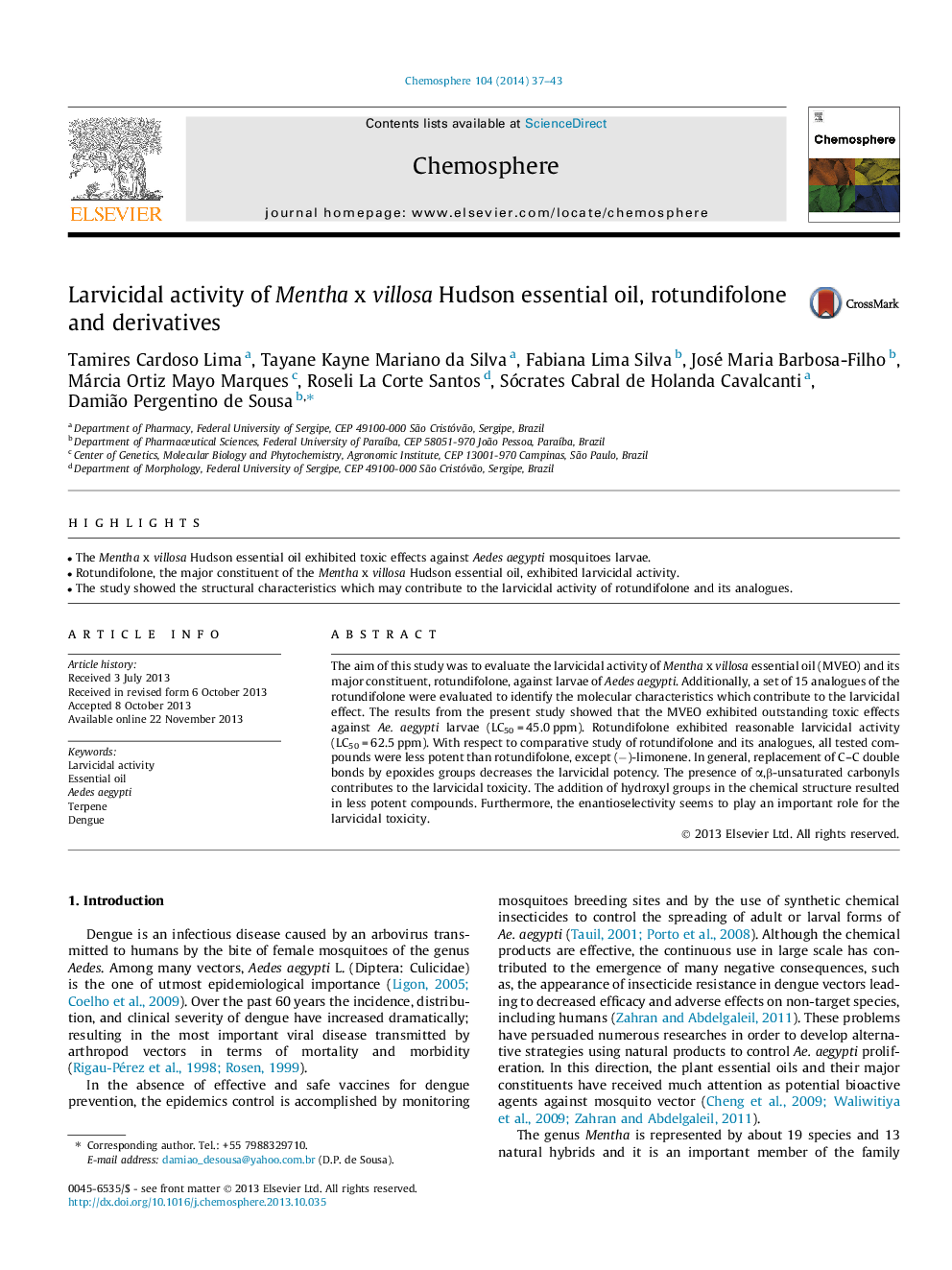| Article ID | Journal | Published Year | Pages | File Type |
|---|---|---|---|---|
| 4408818 | Chemosphere | 2014 | 7 Pages |
•The Mentha x villosa Hudson essential oil exhibited toxic effects against Aedes aegypti mosquitoes larvae.•Rotundifolone, the major constituent of the Mentha x villosa Hudson essential oil, exhibited larvicidal activity.•The study showed the structural characteristics which may contribute to the larvicidal activity of rotundifolone and its analogues.
The aim of this study was to evaluate the larvicidal activity of Mentha x villosa essential oil (MVEO) and its major constituent, rotundifolone, against larvae of Aedes aegypti. Additionally, a set of 15 analogues of the rotundifolone were evaluated to identify the molecular characteristics which contribute to the larvicidal effect. The results from the present study showed that the MVEO exhibited outstanding toxic effects against Ae. aegypti larvae (LC50 = 45.0 ppm). Rotundifolone exhibited reasonable larvicidal activity (LC50 = 62.5 ppm). With respect to comparative study of rotundifolone and its analogues, all tested compounds were less potent than rotundifolone, except (−)-limonene. In general, replacement of C–C double bonds by epoxides groups decreases the larvicidal potency. The presence of α,β-unsaturated carbonyls contributes to the larvicidal toxicity. The addition of hydroxyl groups in the chemical structure resulted in less potent compounds. Furthermore, the enantioselectivity seems to play an important role for the larvicidal toxicity.
